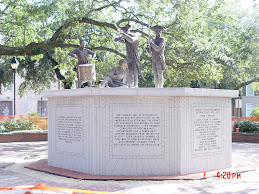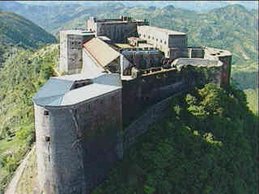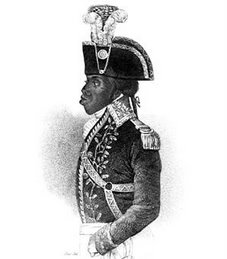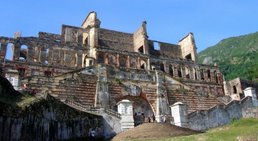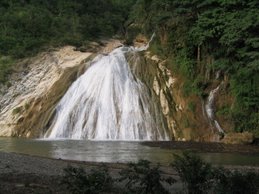Simon Bolivar/
The Life of Simon BolivarBolivar Peninsula was founded in 1820 and is named for Simon Bolivar, patriot, statesman and liberator of five South American Republics. A Spanish subject by birth, Simon Bolivar was born in Caracas, Venezuela on July 24, 1783.
Bolivar's life was dedicated to the independence of the then Spanish colonies, and the dream of Latin American unity. These activities cost him his family's fortune and perhaps his life as well. The dream of a Latin American federation was his goal, and he joined with the independence movements of 1810 and 1811.
In 1810 he fought against the Spanish during a revolt in Venezuela and was forced to flee the country. Bolívar captured Caracas in 1813 and assumed dictatorship. Royalist forces defeated him again in 1814, and he went into exile in Jamaica. In December of 1815 he took refuge in Haitian's southern territories. There, he received a hero's welcome by General Marion, the military commander of the South. (Bolívar fled, in 1815, to Jamaica, where he petitioned the Haitian leader Alexandre Pétion for aid.)
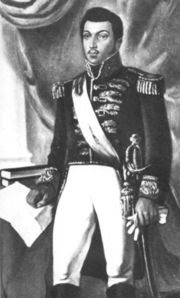
In 1816, with Haitian help (given because he promised to free slaves), Bolívar landed in Venezuela and captured Angostura (now Ciudad Bolívar).
He received weapons and ammunitions and was allowed to enroll several Haitians soldiers and freedom fighters who also wanted to set free all colonial territories. Haitian president Petion made only one request to Simon Bolivar namely: the freedom of all slaves in the countries that he was going to set free.
Bolívar again invaded Venezuela in 1817. He established a revolutionary government at Angostura (now Ciudad Bolívar), and he was elected president of Venezuela. In 1819 Bolívar's army defeated the Spanish at Boyacá. Several months later he became president of the newly formed republic of Colombia, consisting of Venezuela and New Granada.
In 1824 Bolívar led the revolutionary forces of Peru in their fight for independence. He was elected president of Peru in 1825 and later organized in southern Peru a new republic, which was named Bolivia in his honor. Bolívar resigned the presidency of the republic of Colombia in August 1828. He later assumed dictatorial control. Unable to pacify contending factions, he relinquished power in 1830. (Source: Encarta Online)
Today he is known as "The Liberator" ("El Libertador"). His integrity, high morals, and perseverance in the face of overwhelming odds made him a role model to many.
Simon Bolivar was the first President of Bolivia , which became independent of Spain in 1824, and gave his name to the country.
Many years later-on July 20th, 1968 the Republic of Venezuela donated to the community of Port Bolivar a plaque commemorating the heroism of Bolivar. It was unveiled in the Pt Bolivar recreation center, and has been installed on the exterior of the building. The consuls general of six South American nations whose histories were touched by Bolivar, participated in the ceremony. The plaque reads: "This town has been named in honor of Simon Bolivar, Liberator of Venezuela, Colombia, Ecuador, Peru, Panama and founder of Bolivia."

